The Spread of Islam Through Trade and Cultural Exchange
1/521
There's no tags or description
Looks like no tags are added yet.
Name | Mastery | Learn | Test | Matching | Spaced | Call with Kai |
|---|
No analytics yet
Send a link to your students to track their progress
522 Terms
Long-Distance Trade
Trade connecting East and West regions.
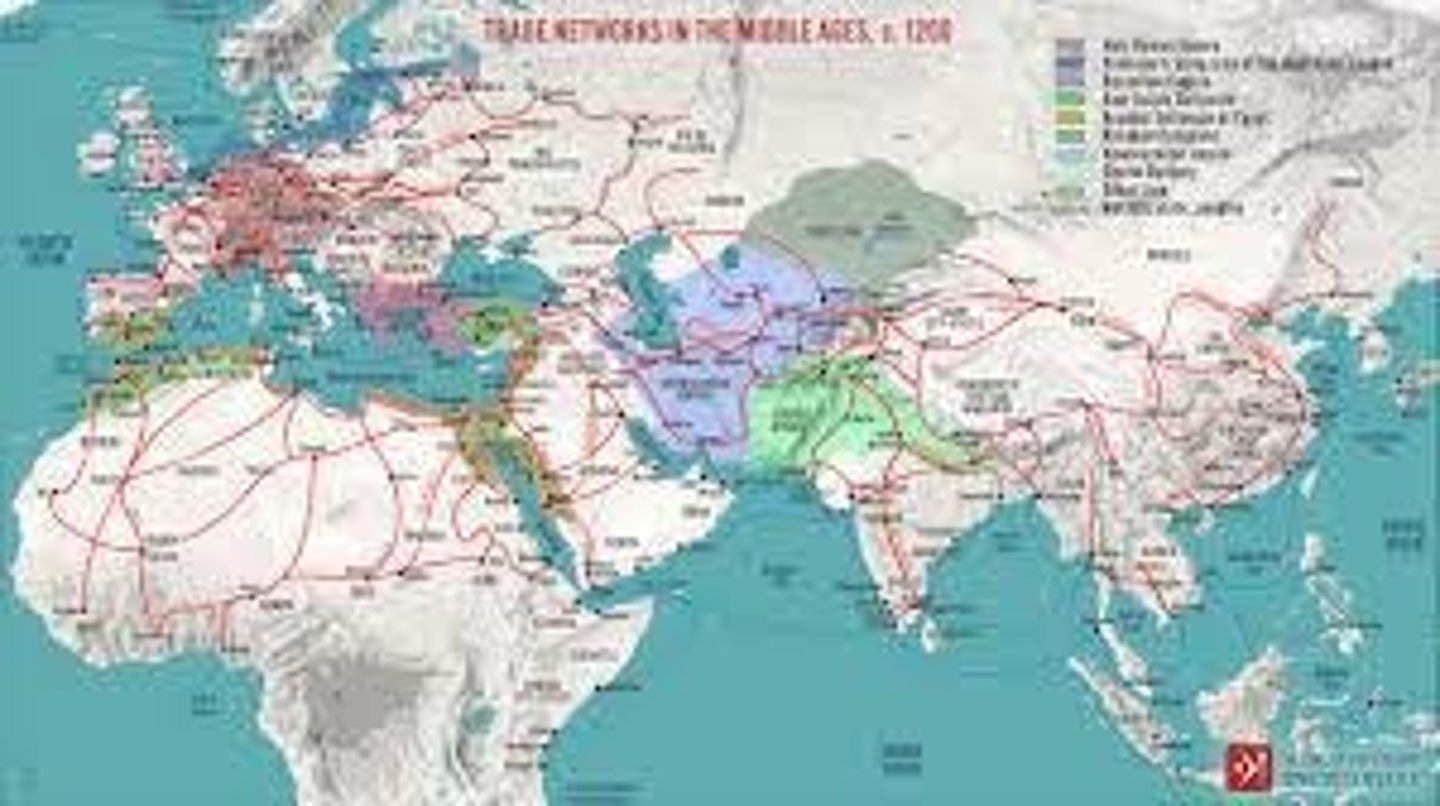
Islamic Conversion Benefits
Local rulers gained political and economic advantages.
Umayyad Caliphs
Rulers expanding trade with North Africa and Middle East.
Cultural Influence
Islamic art and architecture shaped local aesthetics.
Gujarat Settlement
Arab merchants settled and converted local Hindu servants.
Islamic Lifestyle
Local populations adapted to Islamic customs.
Nomadic Influence
Nomads spread Islam through travel and trade.
Migration Impact
Language and culture changed due to Muslim traders.
Bursa Conquest
Turks and Iranians migrated, creating a Muslim city.
Islamic Institutions
Established for education and governance in new areas.
Mosques as Centers
Cultural hubs shaping daily life in communities.
Religious Tolerance
Islam accepted non-Muslims within its framework.
Prophet Muhammad's Migration
Migration to Medina increased Muslim followers.
Umar's Conversion
Public preaching of Islam began after his conversion.
7th Century Expansion
Umayyad caliphs expanded Islamic influence beyond Indus.
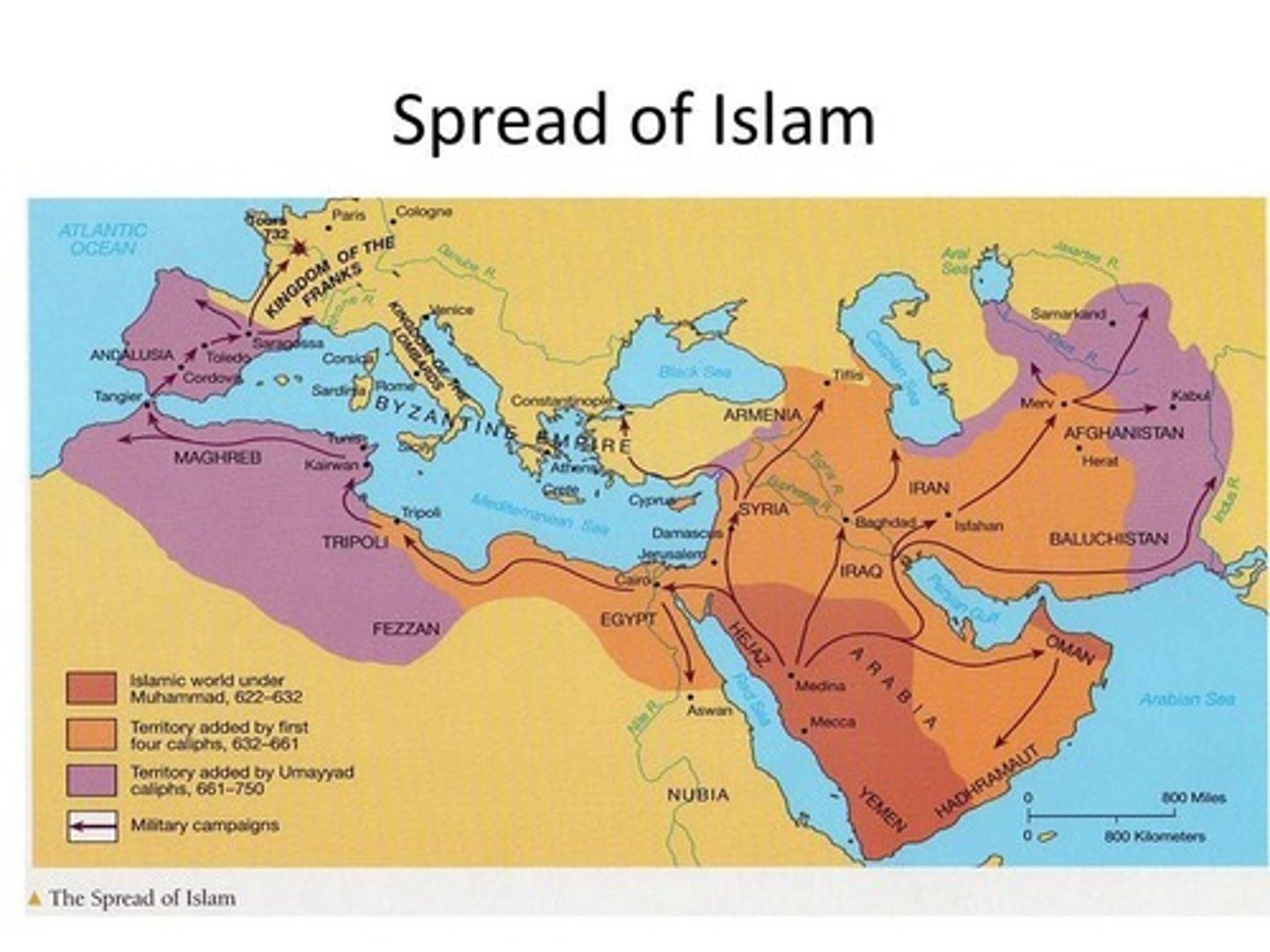
Political Liberation
Local populations viewed Muslims as liberators.
Byzantine Empire Decline
Decaying empire facilitated Islamic expansion.
Social Equality
Islam offered equal status to all believers.
Anatolian Regions
Christian areas weakened, welcoming Muslim influence.
Sufi Activities
Mystical Islamic practices promoting spiritual connection.
Hinduism Decline
Political pressure reduced Hindu missionary activities.
Southeast Asia Trade
Islam spread through maritime trade routes.
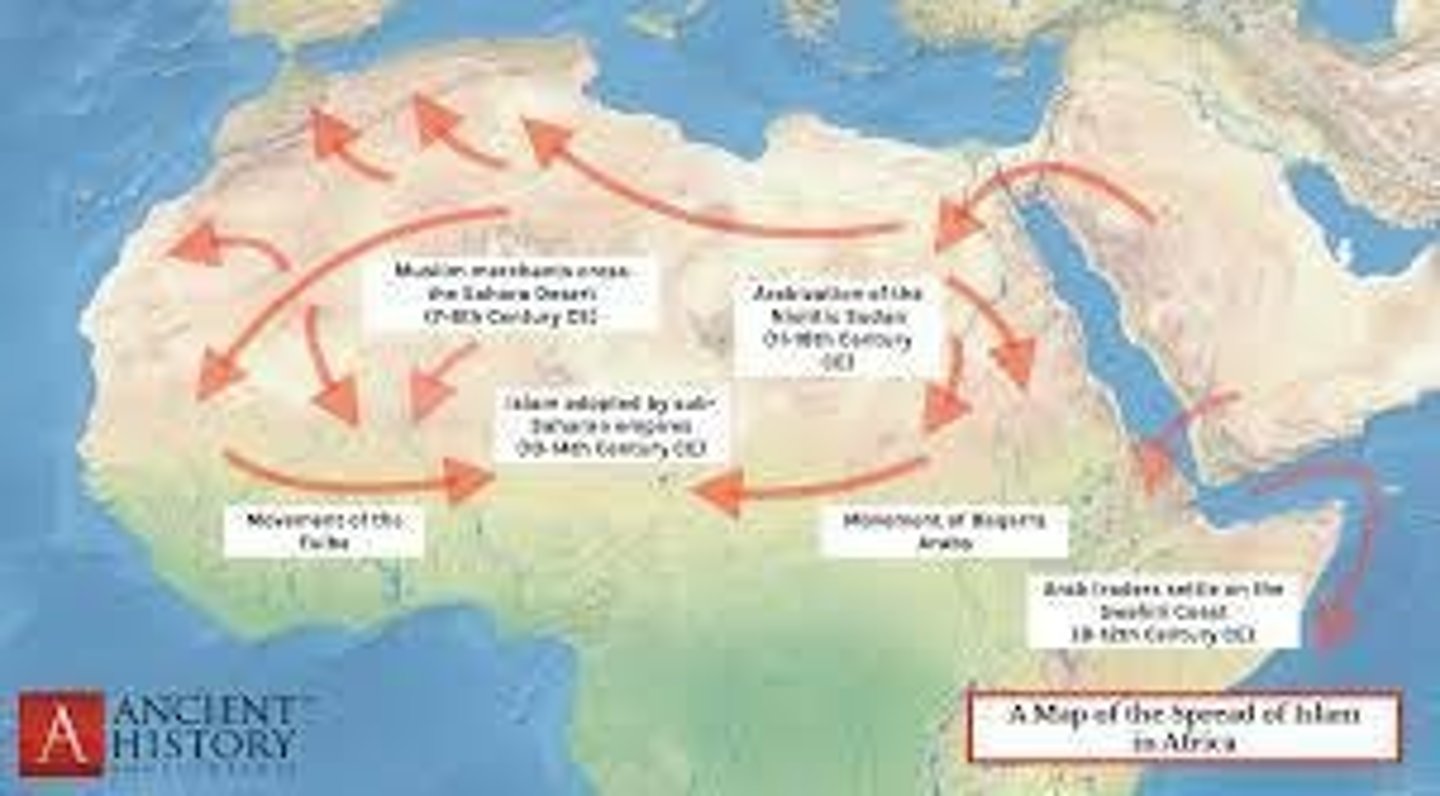
Arabic Language Spread
Institutions promoted Arabic language alongside Islamic teachings.
Cultural Integration
Islamic customs became embedded in local societies.
Economic Relationships
Trade fostered connections between diverse cultures.
Islamic Values
Influenced local diets and dress codes.
Sufi Influence
Sufism played a role in spreading Islam.
Sufism
A mystical Islamic belief system and practice.
Mawlana Jalal al-Din al-Rumi
Key figure in spreading Sufism from Anatolia.
Heterodox vs. Orthodox
Different approaches to Islam; inclusive vs. traditional.
Jizyah Tax
Tax on non-Muslims in Islamic states.
Economic Incentives
Benefits encouraging conversion to Islam.
Alps Erens and Ahis
Groups aiding Islam's spread by cultivating lands.
Sufi Philosophy
Promotes acceptance of non-Muslims in Islam.
Emotional Appeal
Use of dance, music, and literature in Sufism.
Umayyad Period
Era marked by limited conversion incentives.
Kharaj Tax
Land tax imposed on non-Muslim peasants.
Islamic Lifestyle
Attractive way of living influencing conversions.
Commercial Networks
Trade routes facilitating spread of Islamic faith.
Religious Freedom
Muslims could freely build religious structures.
Social Motives
Factors influencing individuals to convert to Islam.
Victorious Military Forces
Islam's military success enhanced its appeal.
Conversion Adaptation
Embracing Islam without abandoning old traditions.
Philosophical Contact
Links between Sufism, Hinduism, and Christian pietism.
Links Between Religions
Sufis connected Hindus and Muslims culturally.
Healing Beliefs
Sufis' practices included healing and saint veneration.
Shrine Visits
Pilgrimages to shrines as part of Sufi practice.
Moral Instruction
Sufis encouraged ethical living alongside religious faith.
Non-Muslim Elites
Local leaders who faced increased taxes under Umayyads.
Cultural Acceptance
Islam allowed retention of compatible local customs.
Tax Exemptions
Certain groups exempt from Jizyah, influencing conversions.
Religious Buildings
Muslims could construct places of worship freely.
Political Recognition
Converting rulers gained status in Islamic governance.
Folk Literature
Cultural expressions used to spread Sufi teachings.
First Class Citizens
Muslims were regarded as first class citizens.
Second Class Citizens
Non-Muslims treated as second class citizens.
Arab Ethnicity
Closer ties to Muslim conquerors than Latin Christians.
Verbal Conversion
Non-Muslims pretended to convert for status.
Spread of Islam
Islam expanded across diverse cultures and ethnicities.
Social Conditions
Influenced conversions in ninth century Andalusia.
Sufism
Attracted Anatolian converts in the thirteenth century.
Cognitive Styles
Individual knowledge influences acceptance of new ideas.
Mundane Reasons
Everyday concerns mixed with spiritual reasons for conversion.
Jesus in Islam
British converts considered Jesus' role before converting.
Missionary Religion
Islam actively seeks to spread its teachings.
Tolerance in Islam
Encourages tolerance towards non-Muslims during conversion.
Arise and Warn
Verse 74:1 instructs Prophet to spread Islam.
Public Preaching
Began after conversion of 'Umar.
Migration to Medina
Prophet migrated in 622 due to persecution.
Rapid Muslim Growth
Muslim population increased significantly in Medina.
Historical Circumstances
Local factors influenced the spread of Islam.
Diverse Factors
Various reasons contributed to Islam's expansion.
Religious Reasons
Spiritual motivations played a role in conversions.
Individual Encounters
People integrate new ideas with existing beliefs.
Stock of Knowledge
Existing beliefs affect acceptance of new religions.
Contemporary Converts
Modern examples of individuals converting to Islam.
Cultural Richness
Islam offers diverse appeals to different cultures.
Islamic State Expansion
Growth of Islamic influence in historical contexts.
Idol-Worshippers of Mecca
Initially rejected the message of Islam.
Beautiful Preaching
Verse 16:125 encourages wisdom in inviting others.
Historical Patterns
Evaluating factors in the spread of Islam.
Prophet Muhammad
Leader who captured Mecca in 630.
Caliphate
Islamic state led by successors of Muhammad.
Umayyad Caliphs
Rulers from 661 to 750 expanding Islamic territory.
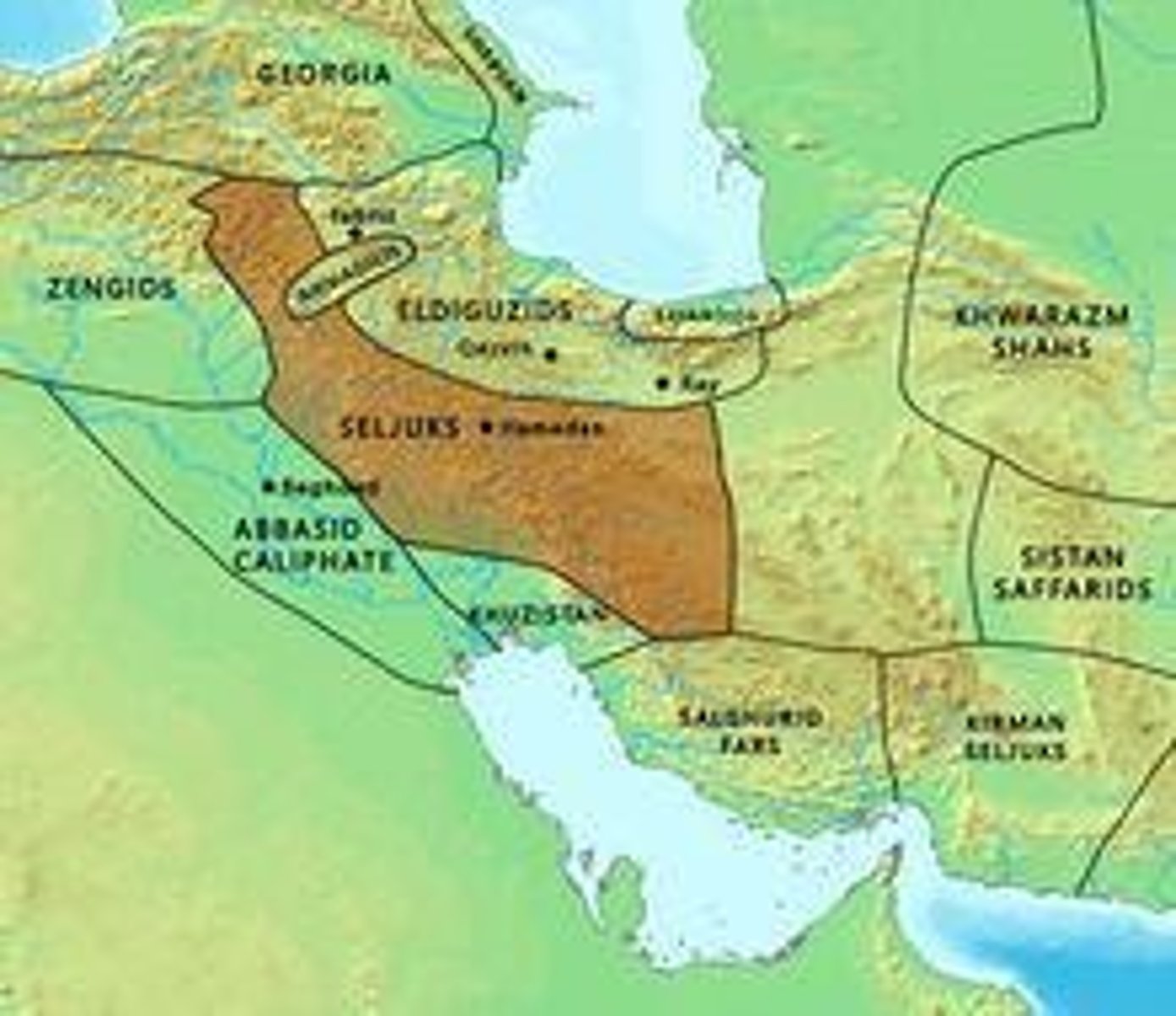
Byzantine Empire
Eastern Roman Empire, conquered by Muslim forces.
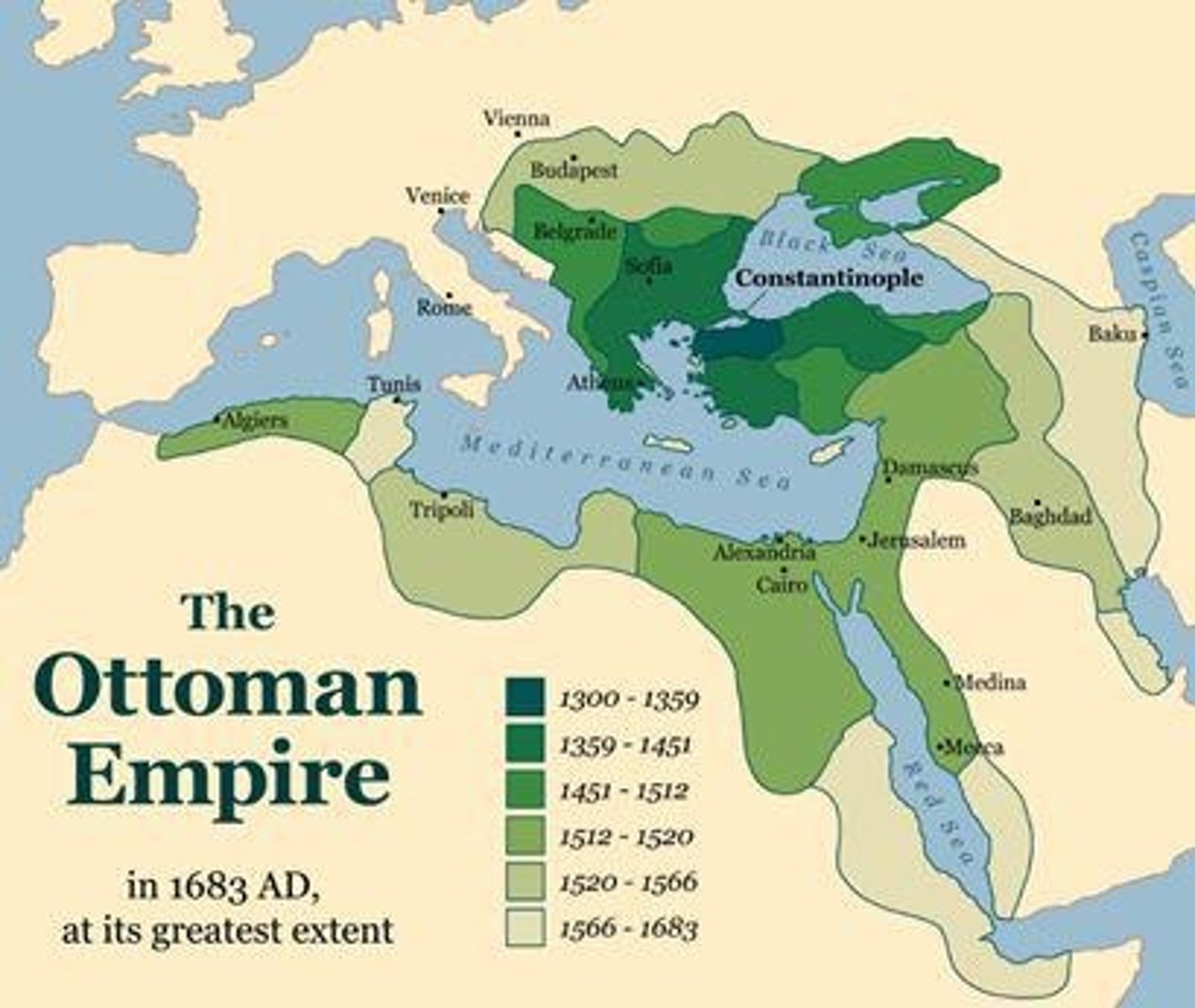
Sassanid Empire
Persian Empire, weakened before Arab conquests.
Maghrib
Northwest Africa under Muslim control.
Iberia
Region in Southwest Europe conquered by Muslims.
Fertile Crescent
Region including modern-day Iraq, Syria, and Lebanon.
Copts
Egyptian Christians with disputes against Byzantium.
Nestorians
Christian sect seeking refuge from Byzantine persecution.
Monophysites
Christian sect opposed to Chalcedonian doctrine.
Political Liberators
Muslims seen as liberators by local populations.
Religious Freedom
Promise of autonomy for persecuted religious groups.
T. W. Arnold
Historian emphasizing Islam's missionary activities.
Michael the Syrian
Chronicler noting Roman cruelty before Muslim conquests.
Indigenous Peoples
Local populations affected by Islamic expansion.
Christianity's Decline
Weakened influence in regions conquered by Muslims.
Military Conquests
Rapid territorial gains by Muslim armies.
Cultural Change
Transformation in societies following Islamic rule.